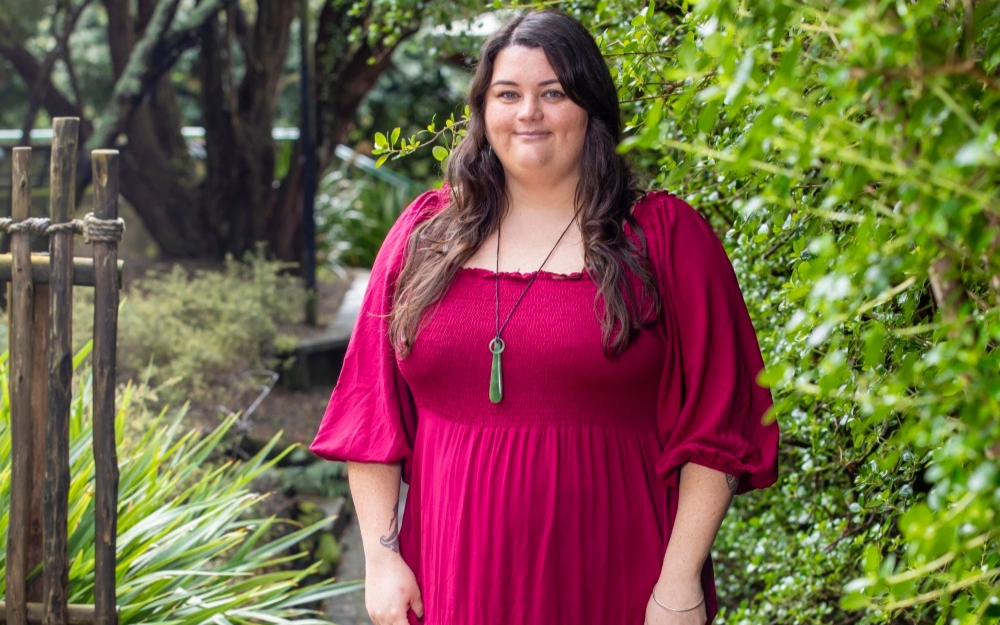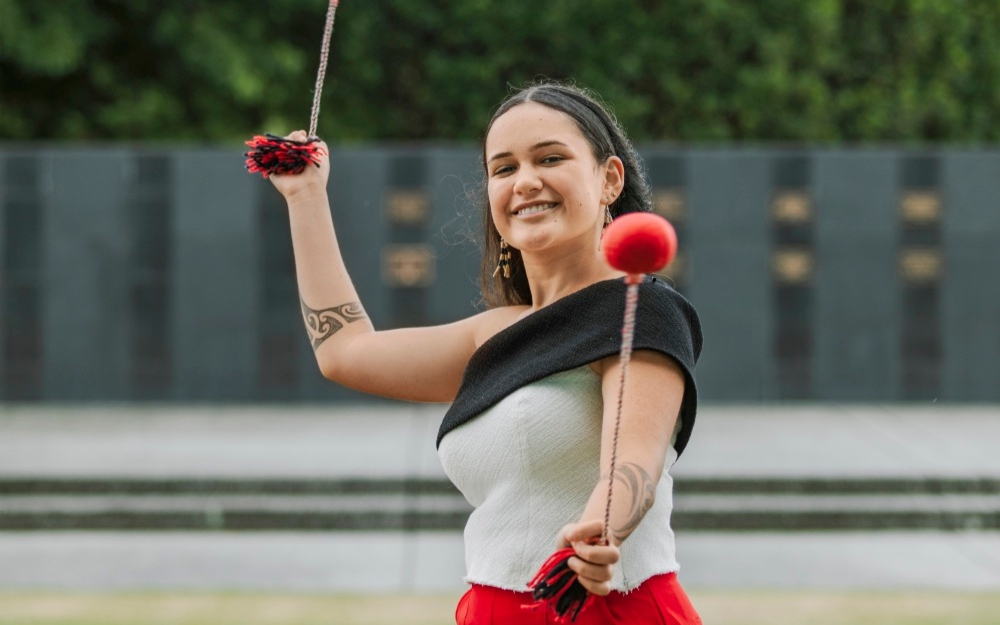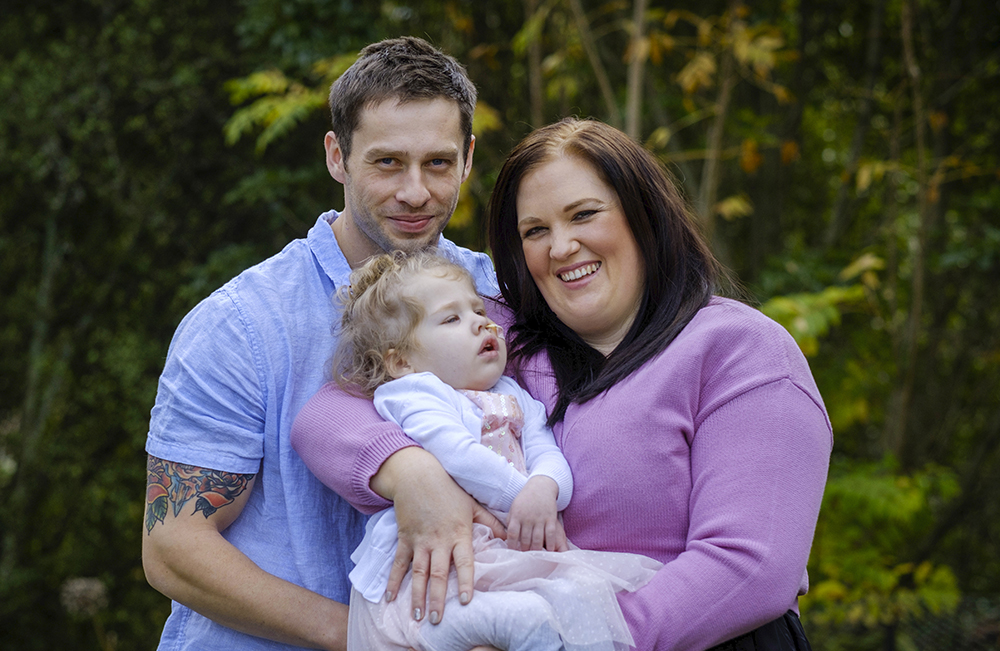As a child with a chronic, life-threatening illness, Ashlea Gillon’s youth was consumed with medical appointments, hospital stays and trying to survive, leaving little time to dream of her one-day career.
What she did have was plenty of time to ponder how others treated her and her body. From as young as five years old, Ashlea – who has lived with chronic steroid dependent asthma since birth – has vivid memories of being told she was fat and being treated differently because of it.
Now, 33, these experiences have inspired an academic career. She’s six years into her PhD exploring fat indigenous wāhine experiences and enactments of body sovereignty, and in July, she was awarded a $249,000 Health Research Council grant for her latest research into fat bias within health spaces for Māori.
“It’s encouraging that fat bias is being recognised as a big problem, especially for Māori,” says the University of Auckland doctoral candidate, research fellow and Fulbright alumni, who dreams of all fat people being taken seriously by medical professionals.
She believes too often that being fat can be blamed as the sole cause of health issues.
“I’ve been a chronically ill person since before I was born, so the health system has always been a part of my life. As a baby, I would stop breathing and I developed chronic asthma and other chronic health issues. I was so unwell for my childhood and teenage years, there was no real life planning because my health was so unstable and it was unsure how long I would live.

From the time Ashlea was born, “it was unsure how long I would live”.
“Through my teens, there was this constant battle of weaning me off steroids while keeping me breathing, chemotherapy to try and counteract the steroids and blood product immunotherapy, with a lot of side effects and illnesses from the drugs I needed to take to stay alive.”
But it wasn’t until she started her own research that Ashlea realised how prominent fat bias was in her own life too.
“It was both validating and challenging to finally have the language to talk about my experiences, realising my earliest memories from five – and every year since – I can pull up a memory quickly of how fat bias and hatred has impacted me,” she shares.
“I had an ultrasound at 10 with a very frustrated technician, who was forcing the wand deep into my stomach, causing a lot of pain and discomfort, complaining she couldn’t see an ovary. I’ve had doctors dismiss pain and new symptoms, been laughed at and told given my weight, I should really have two IUDs, which is not a thing, and been told by specialists my family should buy me SureSlim for Christmas.”
It’s a confronting snapshot, with many more examples over the years of Ashlea feeling disregarded, ignored or ridiculed. But she refuses to let this be her only reality, and instead is reclaiming the right to have fun and experience joy regardless of size.
She remembers how good it felt to wear a bikini at the beach for the first time and now wouldn’t dream of covering up to avoid judgement.

With fiancé Tom Aramoana Taranaki.
“Society generally reacts in two ways – ‘Cover up, your fat should not be seen’ or, ‘You’re so brave.’ I don’t want to be brave, I just want to be understood as normal and just live my life.
“Wearing a bikini or comfortable togs is one of the ways I do that because it’s so much easier to move my body and enjoy the ocean. It shouldn’t be revolutionary.”
Ashlea will also never forget the decision to get a traditional Māori tattoo (tā moko) on her torso.
“For so long, I didn’t want to get tā moko under my breasts and down my puku [stomach] until I had the ‘perfect body’, but this is the perfect body for me. It was a constant message I was receiving from the world until I sat with this research and journey. Now there’s no more ‘untils’.”

Getting tā moko was a turning point.
Ashlea is the first in her whānau to attend university. Her work has taken out multiple awards and scholarships, and she is fiercely determined to make her family and community proud.
“I want to acknowledge my mum because she’s an amazing mother and sacrificed her whole world to keep me alive,” enthuses Ashlea. “Without her, I literally wouldn’t be here, and without the support of my fiancé and family putting up with me in the hard and stressful times, I wouldn’t be doing this research.
“I love what I do regardless of how stressful, challenging and personal it can be. I love learning and understanding how things work, and I hope I can share what I learn in ways that create positive change and are meaningful for other people.”
 Kellie Blizard
Kellie Blizard

